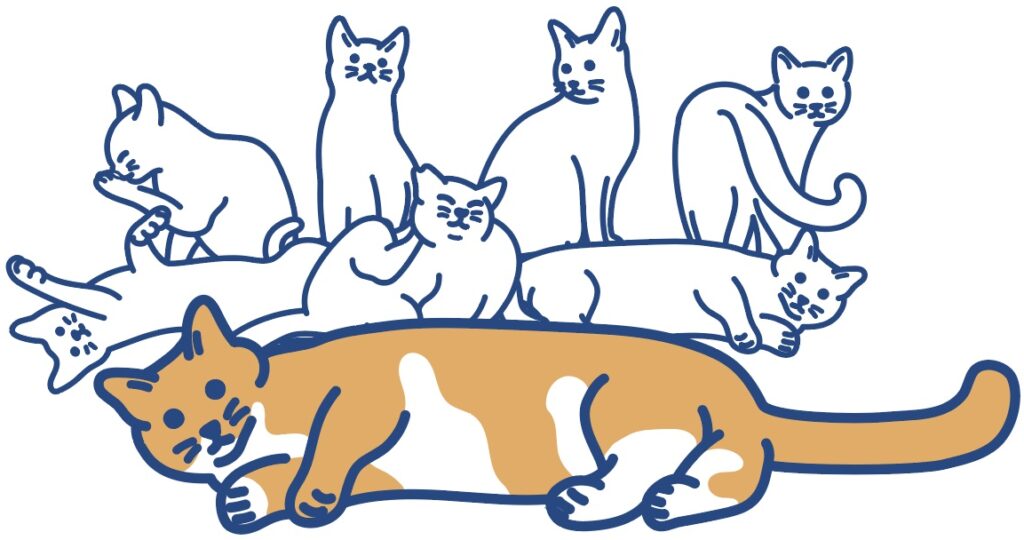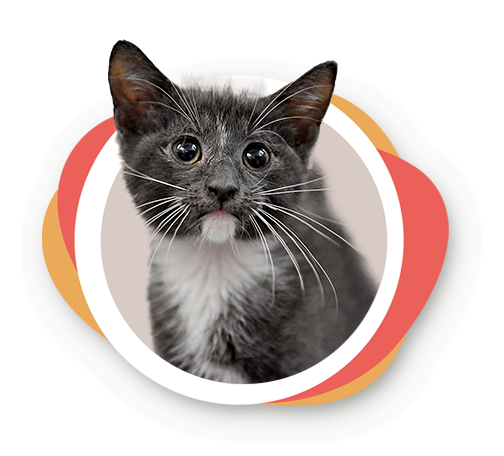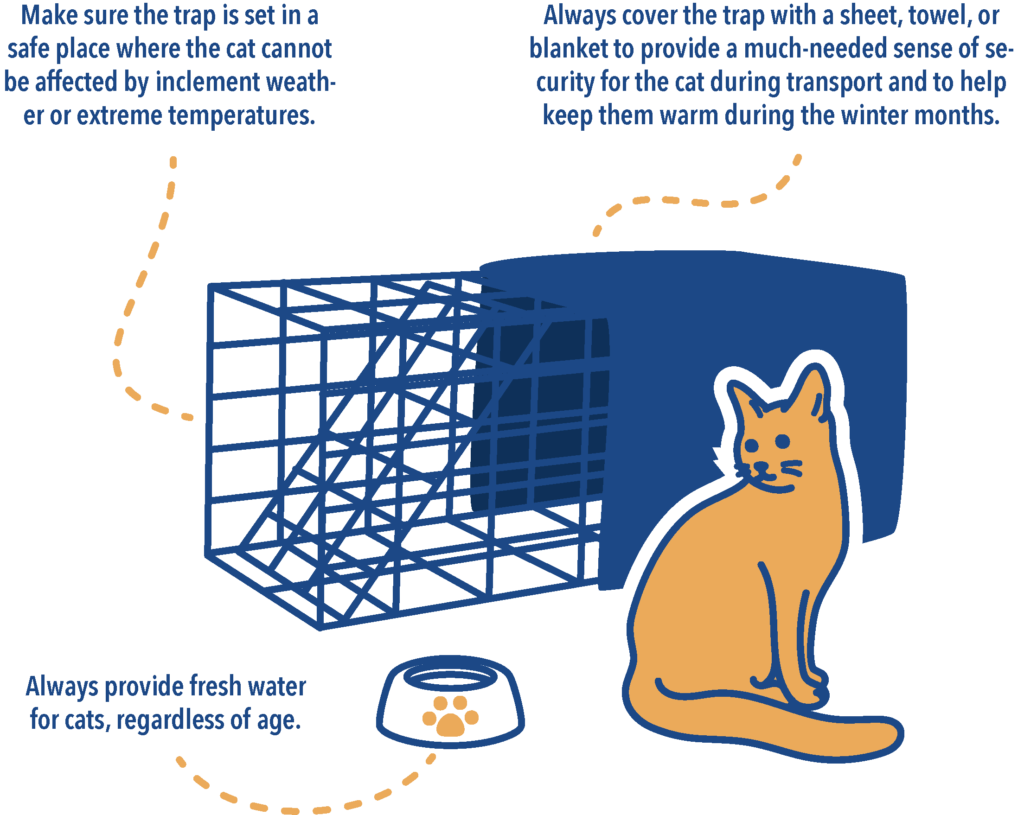Improving the Well-Being of Our Community
TNR Program
Open
Closed
TNR Walk-Ins Monday - Thursday

Did You Know?
On average, female cats will have 1-2 litters per year of 3 kittens each for 12-15 years.
Safely Managing The Community Cat Population
Trap-Neuter-Return
Requirements
- We accept one cat per person per day.
- Cats must weigh at least 3 pounds (~12 weeks old).
- Cats MUST be in a quick-release trap. Cats in carriers will not be accepted.
- One cat per trap. Traps with multiple cats in them will not be accepted.
For One Cat
TNR Walk-In Procedure
Check In Between
8:00 - 8:30 a.m.
Pick Up Between
8:00 - 8:30 a.m.
The Next Day
For Multiple Cats
TNR Appointment Procedure
What We Offer
TNR Program Services
-
Distemper Vaccine $20
-
Feline FelV/FIV/Heartworm Test $18
-
Revolution $16 - $18
Treats fleas, ear mites, lice, and some GI parasites
-
Catego $12
Treats fleas and ticks only
-
Droncit Injection $15
Treats tapeworms
-
Microchipping $50
For TNR cat

TNR Transport Form
Post-Surgical Release
Caring for A Trapped Cat

Spay It Forward
Have A Question?
TNR FAQs
In addition to the spay/neuter service, the TNR Program provides the following for each cat:
- Rabies Vaccination: All cats receive a rabies vaccination while in our care.
- Ear Tipping: Each cat’s left ear is tipped to help people easily identify that they have been spayed/neutered and vaccinated for rabies. Ear tipping is required for all cats and cannot be declined.
- Tattoo: Each cat receives a green scoring tattoo on the abdominal area by their belly button. This tattoo is a universal sign that the cat has been spayed/neutered.
If the cat has a microchip, we will attempt to contact the microchip registrant, but the cat and accompanying microchip information will be returned to the trapper if we do not hear back from the microchip registrant before the cat is scheduled to be picked up.
Yes, the spay/neuter clinic accepts everyone no matter where they reside or where the cat was trapped.
Even if the cat is a friendly outdoor cat, it still needs to be in a humane trap. This is for the safety of the cat and our staff as they handle them.
For the safety of the cat, yourself, and our staff, all cats must come in a humane live-release trap. Free-roaming cats have unknown rabies status and cannot be handled awake. The humane trap allows staff to sedate the cat through the bars and safely handle them once they are sedated. Cats that arrive in carriers or anything other than a trap will be turned away.
- Always provide fresh water for cats, regardless of age.
- Always cover the trap with a sheet, towel, or blanket to provide a much-needed sense of security for the cat during transport and to help keep them warm during the winter months.
- Make sure the trap is set in a safe place where the cat cannot be affected by inclement weather or extreme temperatures.
